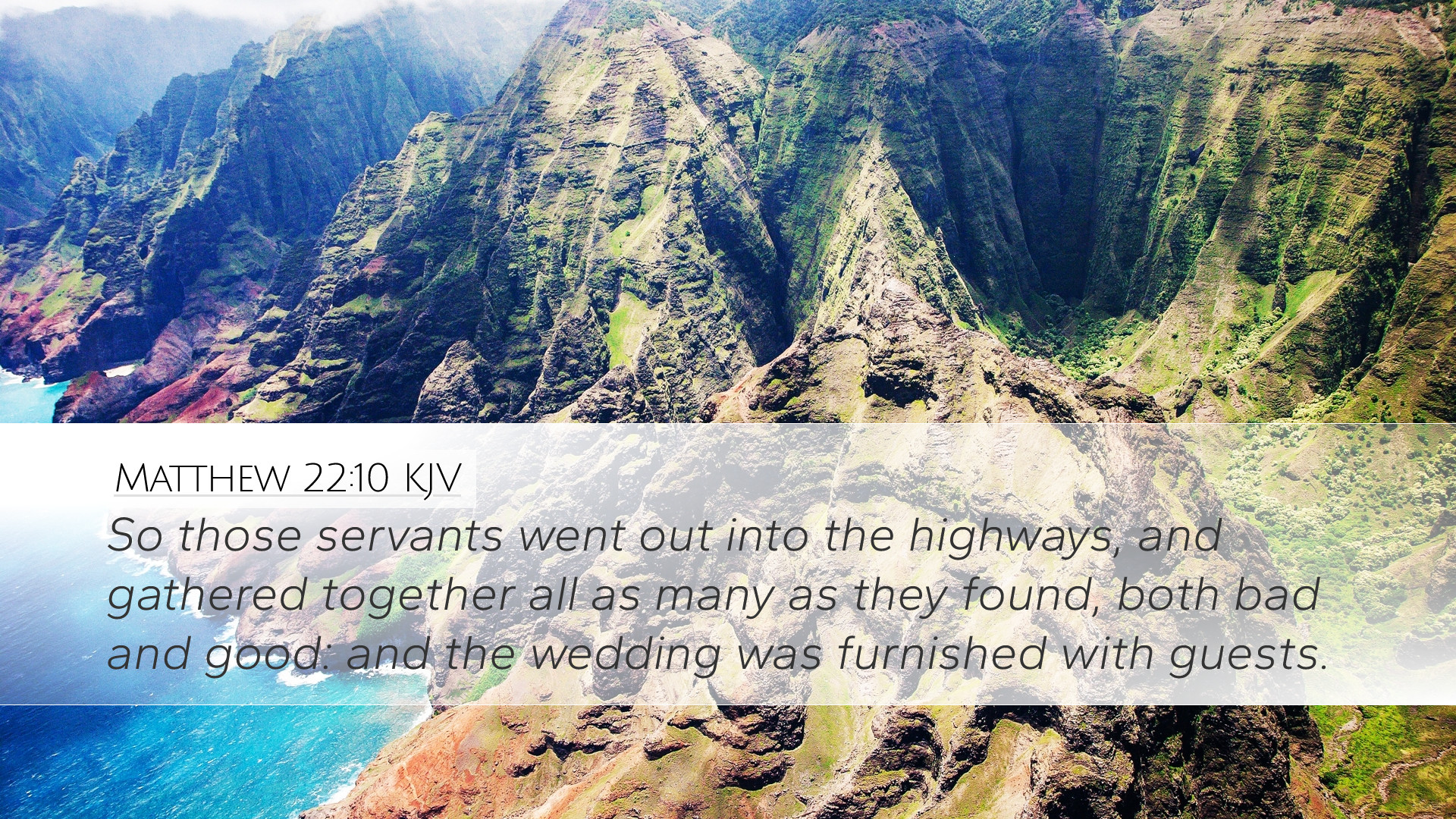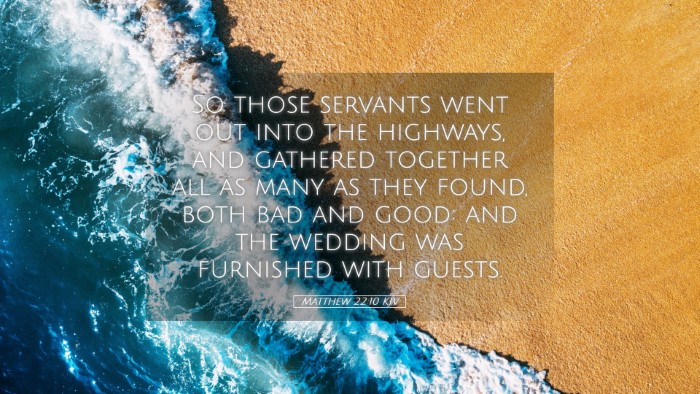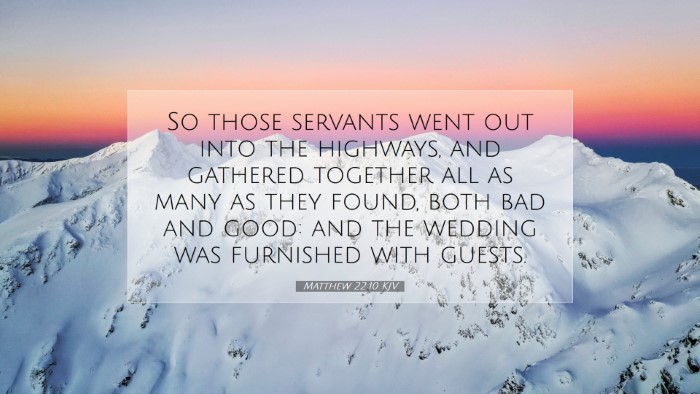Commentary on Matthew 22:10
Verse: "So those servants went out into the highways and gathered together all whom they found, both bad and good. And the wedding hall was filled with guests."
Matthew 22:10 is part of the Parable of the Wedding Feast, where Jesus illustrates the invitation to the Kingdom of Heaven. This verse captures the urgency and inclusiveness of God's call to His banquet, emphasizing that all are welcome regardless of their moral standing. Below, we delve into various aspects of this verse synthesized from notable public domain commentaries.
Contextual Analysis
This parable is set during the final week of Jesus' ministry, aimed at denouncing the Jewish leadership's rejection of God's invitation through Christ. By this time, many had already refused to recognize Jesus as the Messiah.
As Matthew Henry puts it, "...the kingdom of heaven is likened to a king who made a marriage for his son." This framing invites readers to consider the significance of weddings in biblical culture, which symbolize joy, union, and divine favor.
God's Invitation to All
The phrase "gathered together all whom they found" signifies the universal call of the Gospel. Albert Barnes notes, "This shows that the Gospel is offered to all classes and conditions of people, the good and the bad." There is a profound theological implication in this inclusivity; it exemplifies God's grace, that the merit of the invitees is not the driving factor for acceptance.
This invitation mirrors the teaching in 2 Peter 3:9, where God states His desire for all to come to repentance. Thus, the parable serves as a warning against self-righteousness and highlights God's love reaching out to those who are often overlooked by society.
Metaphorical Significance
The "bad and good" invitees serve as a metaphor for the diverse nature of God's church. Adam Clarke emphasizes this contrast in moral standing, arguing that "the wedding hall being filled with guests symbolizes the comprehensive nature of salvation." When God prepares His banquet, it is filled with people from varied backgrounds and moral standings, reflecting the reality of Christ’s redemptive work.
The Response to the Invitation
While this verse illustrates the inclusivity of God's invitation, it also raises important questions about how individuals respond to it. Matthew Henry warns against accepting the invitation without a transformation of the heart, pointing out that many who come may do so for the festivities but fail to embrace the responsibility of being part of the feast.
The act of "gathering together" indicates proactive engagement. God employs His servants to actively seek out those in need of His grace, reminding believers of their role in evangelism. Every church should take inspiration from this, pushing boundaries to reach every demographic for Christ.
Theological Implications
The gathering of both "bad and good" serves to reflect the Kingdom of Heaven's radical inclusivity, as echoed throughout Scripture. It challenges preconceived notions regarding worthiness in that no one is beyond the reach of God's grace. Albert Barnes emphasizes that every individual, regardless of their past, has access to redemption through Christ.
Furthermore, this also presents a cautionary tale for those who think themselves 'good', warning that complacency can lead to rejection. The "wedding hall" can be seen as the culmination of God's plan, representing clarity that while all are invited, not everyone will remain in communion with the King, as underscored in succeeding verses where the improper guest is eventually cast out.
Conclusion
Matthew 22:10 serves as a profound reminder of the inclusivity and depth of God's call through Jesus Christ. The banquet is ready, the invitation is extended without prejudice, and it beckons all to partake in the joys of eternal life. As we reflect on this verse, let it be an encouragement to all pastors, students, theologians, and Bible scholars to assist in gathering those who are lost while upholding the high standards expected of those who accept the invitation.
As we prepare to fulfill the Great Commission, let us ensure our gatherings reflect the nature of God's invitation to all, nurturing both the good and the bad in our community toward discipleship and transformation.


